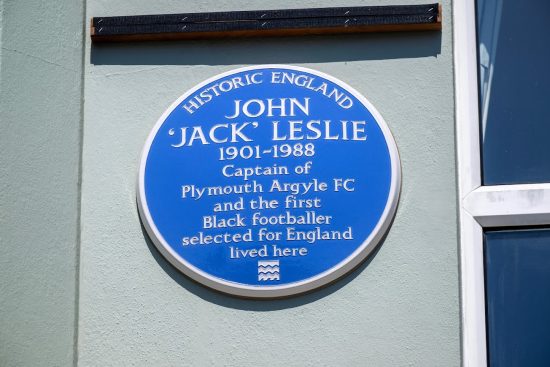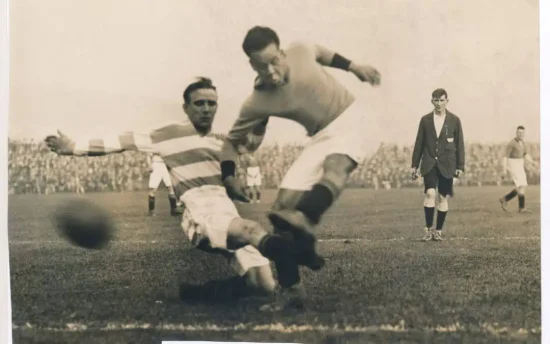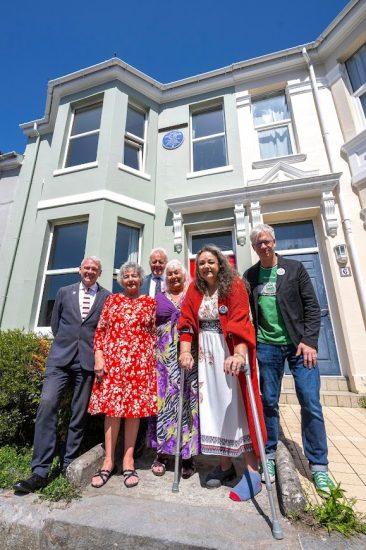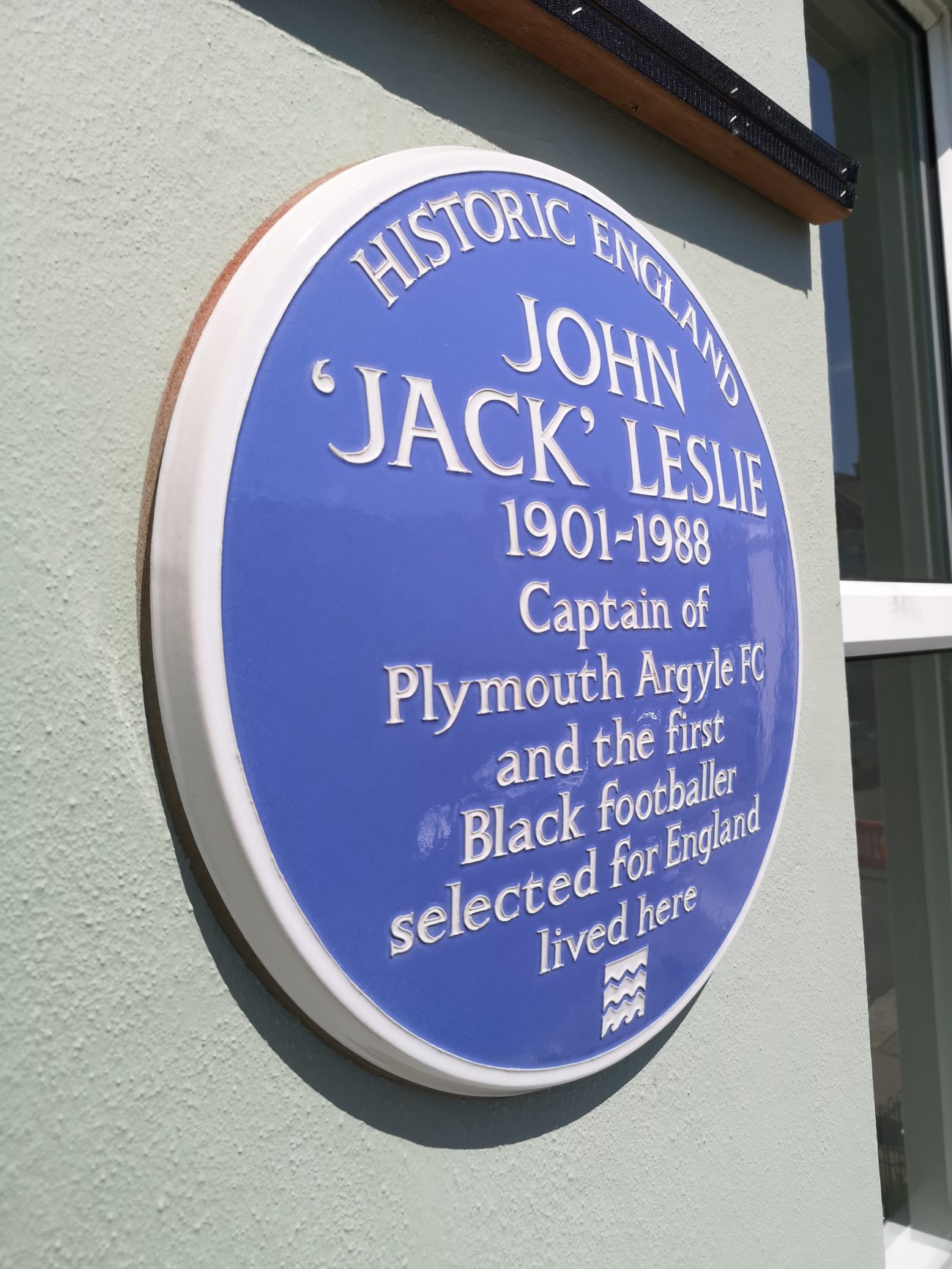
Some of my earliest memories of getting interested in history are of seeing plaques on buildings commemorating the famous people who lived there. I particularly remember seeing the Blue Plaque for artist Vincent Van Gogh in Isleworth as we were passing it on a bus, and and asking my Dad about this artist’s story. Blue Plaques were gateways into my career.
Back in 2023, it was therefore a massive honour and responsibility to by appointed to Historic England’s new National Blue Plaque Panel, and to become one of the people who awards these national commemorative markers.
In May 2025, we unveiled the first sporting plaque in this new project. It’s to Jack Leslie, a London-born footballer who played for Plymouth Argyle (the Pilgrims) from 1921 to 1935. Jack was the son of a black Jamaican father and a white English mother, and he was one of only a handful of professional black footballers in the post-First World War Football League.

Jack was a skilful player and a high goal scorer, and a key member of Plymouth’s team in those years. In 1925, the Football Association (FA) selected him as a travelling reserve for a full England international squad to play in Ireland. He thus became the first black player ever to be selected for the England football team. However, between the squad being published in the press and the match itself, Jack’s name vanished. He had clearly been selected on merit, but once the selectors saw him and realised that he was black, they dropped him. In Jack’s own words, ‘the FA had come to have another look at me. Not at my football but at my face…Found out about my Daddy, and that was it’ (quoted in Matt Tiller, The Lion who Never Roared, p.135). He was never picked for England again.

Jack died in 1988. His story, and this early example of institutional racism in English football, was publicised by the Jack Leslie Campaign . This pressure group was formed in 2020 by Plymouth fans working with Jack’s indefatigable grand-daughters. Their work led to the Pilgrims erecting a statue of Jack outside their stadium, Home Park, in 2022. In an unprecedented step, the FA awarded Jack a posthumous honorary cap in the same year ‘to right this historical wrong’.
The Historic England Blue Plaque, placed on the house in Glendower Road, Plymouth, where Jack and his wife Win lived when he was playing for Argyle, is a national recognition of this extraordinary man and the historic wrong that he suffered. It was an incredible honour to meet Jack’s family and Matt Tiller of the Jack Leslie Campaign and author of a biography of Jack, at the unveiling. I made a speech on behalf of the Blue Plaque Panel, which ended ‘When we started this National Blue Plaque Scheme, one of our goals was to celebrate inspirational pioneers and quiet revolutionaries. Jack Leslie fits that bill perfectly.’
I’ve taught about plaques and other forms of public history. Being involved in commissioning and unveiling a plaque such as this made a huge impact on me as a historian, as it helped me see the impact that commemoration can have on families and communities. It was a long way from that bus ride through Isleworth when I was a child.
The honour, though, belongs to Jack and his family.
Watch the Historic England video of the unveiling event here.
Read the Historic England citation for Jack Leslie’s plaque here.
